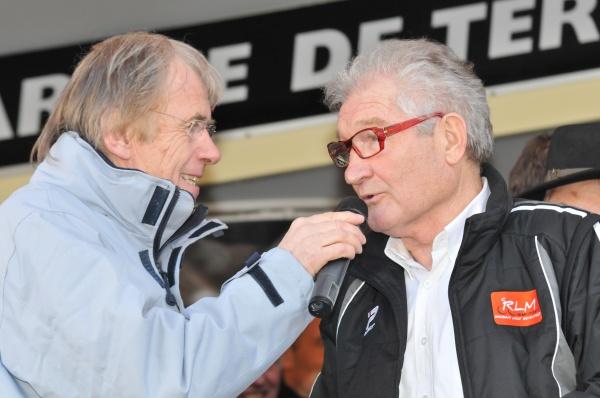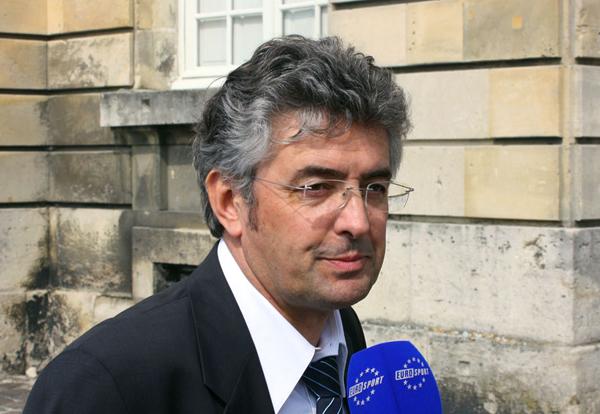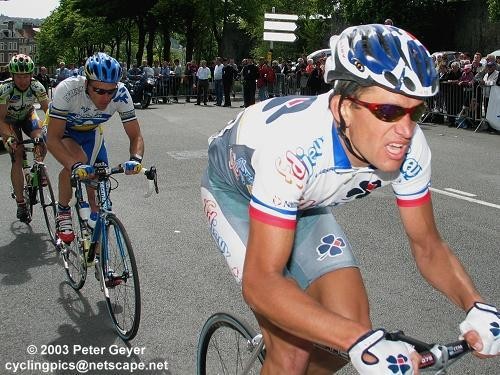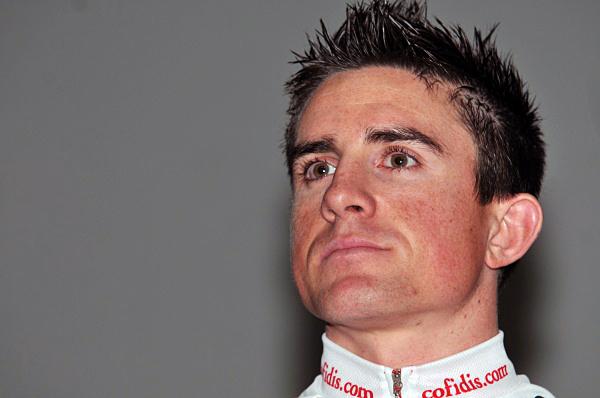Race radio does not increase security, says Guimard
Discussions on radio communication continue in France




The debate about the use of race radios continues amongst riders and teams after the UCI decided to stop their use in Category 1 and Hors Category events in 2011 and extend the ban to World Calendar events in 2012.
A large majority of teams and riders are against the ban, citing safety as the main reason to maintain radios, but several French sports directors have pointed out that the issue is not quite that simple.
Cyrille Guimard, seven-time Tour de France stage winner and long-time team director, argued in Thursday's L'Equipe that radio communication could distract the riders, sometimes even causing crashes instead of preventing them.
"I have never read a serious study of race radio impact on concentration or balance. In the last five kilometres of a race, I never say a word to my riders in order not to distract their attention, to not make them make mistakes with their braking and their trajectory. During the race, we don't even tell them about a roundabout because they're being signalled by motorcycles leading the race anyway," said Guimard, who now runs Continental team Roubaix-Lille Métropole.
"One day, I saw a rider fall without an apparent reason. He told me,' Oh, I was absorbed by the radio and I touched the guy in front of me.' The security argument is a fraud."
Guimard's opinion was echoed by former Tour of Flanders winner Jacky Durand. "It's a false pretext. Show me one single sports director who announces a speed bump... As regards security, race radio even has a perverse effect when 20 sports directors simultaneously ask their riders to move up in the bunch because of a change in direction or for a side wind. And I still remember Kivilev, who died because he had both hands in his back pocket, probably trying to fix his radio reception." Andreï Kivilev crashed heavily on March 12, 2003, in Paris-Nice, and died due to his injuries.
To Guimard and Marc Madiot, manager of team FDJ, the use of radio communication leads to increasingly dull racing, and even the argument of poor or non-existing assistance in the case of mechanicals cannot dissuade them.
The latest race content, interviews, features, reviews and expert buying guides, direct to your inbox!
"For the AIGCP (the association of Pro Tour and Pro Continental teams), the best rider has to win, but if that's how it's going to be, then we will be bored," said Madiot. "TV spectators want the unexpected, the uncertain, and not scenarios that are written in advance."
Guimard agreed. "Breakaways are systematically caught at one kilometre before the finish. It's legitimate to question this! A closed system generates a mafia system..."
Cofidis rider Samuel Dumoulin also had this point of view, even asserting that riders were acting like robots, being remote-controlled by their team directors. "I have ridden my entire career with radios, but it doesn't prevent me from thinking that we always fall back into the same old race routine, and that the public is getting a bit tired of it. When you go on the attack at the Tour, you know that there is a 99% chance that you will be caught. They become publicity breakaways, just to show that you exist. Without radio, we'd experience more unexpected twists.
"Today, there is no need for thinking or anticipating, even to study a race route. The whole mental part disappeared and the rider is merely a robot."